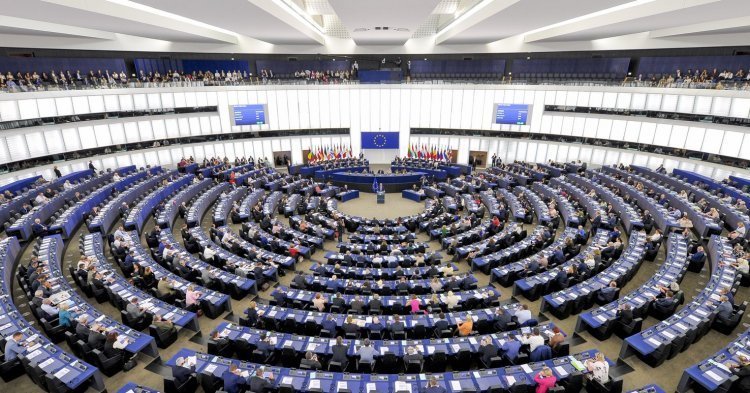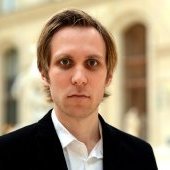The European Union, long-awaited on the world stage
On 12 September 2018, the President of the European Commission, Jean-Claude Juncker, delivered his fourth and last speech on the State of the Union (SOTEU) before the European elections in May 2019. Considering the current Commission as an episode of a greater story, defining himself as the servant of a great design, Jean-Claude Juncker refused any assessment. His speech, however, revealed a form of personal conclusion: the President of the Commission was not able to fulfill his real will.
On 22 October 2014, during the presentation of his work programme for the five years of his mandate, Jean-Claude Juncker wanted a “time for action”, saying that his Commission would be “the last-chance Commission”. At the time, he was displaying his determination to make Europe a legitimate and credible “political whole”, dedicated to “deal with big issues”.
Alas, the realities of the Union and of the European institutions have not enabled him to establish a sovereign and strong Europe, capable of asserting itself as a major player in international relations. It is still a project, of which he perpetually draws the prospects. Jean-Claude Juncker is thus a man who wants to continue to act for Europe, the great concern of his life. A great concern that cannot come to an end.
Jean-Claude Juncker expressed the necessity for Europe to leave the sidelines of the world arena, to cease to be a spectator, to become a global actor, an architect of tomorrow’s world. To this end, he called upon the Union to make tangible progress, to revert, on the basis of the Lisbon Treaty, to a vote by qualified majority that would allow the European Council to decide on foreign policy.
The action of the European Commission has been especially marked by an improvement of the Union’s diplomatic coherence, as well as by advances in the field of defence, but we are still far from the desired purpose. In the context of an exacerbated American unilateralism, of a threatened multilateralism, of a growing affirmation of China, and of a chaotic Middle East, the European Union lacks the necessary tools to become a key international player. Europeans must wake up and organise, while there is still in the world a “demand for Europe”.
Today, political fights are conducted on a global scale
On 11th September 2018, during the ninth debate on the future of Europe, the Greek Prime Minister, Alexis Tsipras, called for an ambitious reform of Europe. The head of the Government of the Hellenic Republic announced that the European elections in May 2019 will represent the most important battle, a major fight of values and principles. It will be a clash which, according to him, will unify all the progressive, democratic and pro-European forces in order to break nationalisms and populisms and to avoid a deflagration of the Union which would become a fragmented space, without cohesion, without a role, deprived of any international perspective.
In the beginning of the 21st century, political fights are definitely conducted on a global scale. To reinvent itself, Europe must write a new story and lead a project of transformation for the world. Progressive Europeans must assert a vision of humanity to counter the violent and dangerous offensive of authoritarian regimes and figures.
We “have a better story to tell” Barack Obama said on 17 July 2018, while recalling that humanists could lose the fight for freedom and the defence of human rights. As the former American President exposed, the progressives will have to work harder, learn from the mistakes of the recent past and become smarter. A new model is to be imagined, an innovative model that will lead to the emergence of a sustainable world and the empowerment of future generations.
France as a major driver of the assertion of a new Europe in the world
At a time when Germany is distancing itself from major European issues and focuses on its domestic political and social difficulties, France cannot follow the same evolution. The country is faced with the necessity of not confining itself to its borders, of taking the initiative and assuming alone a driving role in European integration. The challenge for the French President, Emmanuel Macron, is to demonstrate his effectiveness as a Head of State, in the fulfillment of his domestic policy and in the European project’s revival, while liberal democracies’ efficiency and legitimacy are challenged, especially by illiberal democracies that claim to be more sovereign.
On 27 August 2018, the French President reasserted his European ambition during his speech to the ambassadors. His ally, MEP Guy Verhofstadt (ALDE), can help build a progressive and pro-European dynamic, an ambitious and innovative project, in the run-up to the 2019 European elections. The pro-European centrist François Bayrou is also a partner who is worth listening to.
For Emmanuel Macron, it is now crucial to build a strong narrative, for France and Europe, like Barack Obama. But unlike the former American President, Emmanuel Macron will have to find the right adaptation in action, which must be as strong as his words.
The Paris Peace Forum, which will take place from 11 to 13 November 2018, will allow France to assume a leading role within a shared European diplomacy. While we are witnessing a rise in migration flows, the emergence of a new international power structure, and an actual risk of new troubles in the Middle East, it is time for Europe and the world to commit to the definition of an ambitious global governance.


Follow the comments: |
|
